‘Civil Society Should Evaluate Coordination and Cooperation Opportunities for Effective Disaster Management’
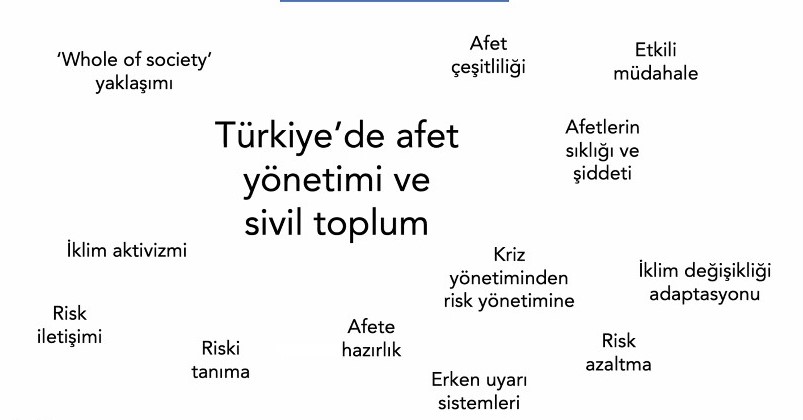
In the online workshop organized by Civil Pages with the title ‘Climate Crisis, Disaster Management and Civil Society’, the role of civil society in the face of the increasing and diversifying disaster risk with the climate crisis, deficiencies and suggestions for solutions were discussed. NGO representatives and experts emphasized better coordination and cooperation between civil actors, the need to include vulnerable groups in the fight against disasters and to increase cooperation between actors with a risk management approach.
[Image Translation: Disaster management and civil society in Turkey: The ‘whole of society’ approach, Climate activism, Risk communication, Recognizing risk, Disaster diversity, Effective intervention, Frequency and severity of disasters, From crisis management to risk management, Disaster preparedness, Climate change adaptation, Risk reduction, Early warning systems]
Civic Pages held the last of its series of online workshops, organized with the support of The European Endowment for Democracy, on September 17, 2021, with the title ‘Climate Crisis, Disaster Management and Civil Society’. At the workshop, around 25 NGO representatives working on many issues such as humanitarian aid, disaster response, women’s rights, disability rights, animal rights, sustainable development, the role of civil society in disaster relief, including this summer’s forest fires and floods, civil society stalked about how society can be more effective in disaster policies and how vulnerable groups can be included in disaster policies.
Journalist-Writer Emine Uçak Erdoğan, who moderated the workshop and spoke at the opening, drew attention to the importance of the social context in disasters and the inclusion of vulnerable and disadvantaged groups in disaster policies. Stating that Turkey has made a progress in the fight against disasters in civil society and the public sector, Erdoğan emphasized the need to go a long way in risk management and preparation phases and noted that civil society has an important role in the inclusion of vulnerable groups in disaster policies.
‘Climate, Environment and Disaster Management NGOs Should Work Together’
At the beginning of the workshop, Sema Genel Karaosmanoğlu from the Support to Life Association made a presentation on the participation of civil society in disasters, and Dr. Alp Baran Uncu made a presentation on local governments’ fight against the climate crisis.
Stating that the 1999 Marmara earthquake was a milestone for the civil area to participate in disaster management, Karaosmanoğlu pointed out the need for civil society to develop different areas in the fight against disasters, the severity of which increased and diversified as a result of climate change.
Pointing out that civil society is successful in post-disaster crisis management, but there are deficiencies in looking at disasters with the eye of ‘risk management’ and preparing for disasters due to the effects of the climate crisis, Karaosmanoğlu said that the climate crisis requires community-based early warning systems in disasters and stressed the importance of defining and understanding the risk, and then to communicate the risk.
Karaosmanoğlu said, ‘As NGOs in disaster management, we are not very articulated with NGOs working on climate and environment, it is very important that climate and environmental workers and civil actors working on disaster management work together’, and stressed the need for inclusion of all actors, including the public, local government, and the business world, to be involved in disaster management. Speaking as one of the NGOs that continue their activities under the Afet Platformu (Disaster Platform), Karaosmanoğlu warned that ‘civil energy should be channeled correctly’.
‘Knowledge and Expertise of Local Governments in the Field of Climate Is Limited’
In his presentation, Baran Alp Uncu talked about the limited activities carried out by local governments regarding the climate crisis, and the success of cities in the fight against the climate crisis requires a paradigm shift, based on the Cities for Climate Monitoring Evaluation Report prepared by 350.org.
In the evaluation report, which focuses on the work of 24 municipalities that say ‘İklim için Biz Varız’ (We are here for the Climate) within the scope of the Cities for Climate research in Turkey, Uncu stated that due to the effect of the pandemic, municipal resources are directed to the epidemic instead of the fight against the climate crisis, and therefore the steps taken for the climate are insufficient.
Stating that there are some municipalities such as Bursa, Kadıköy and İzmir among 24 municipalities that have prepared Climate Action Plans and developed exemplary practices, Uncu noted that the climate justice framework is weak especially in local governments.
Uncu said that the capacity of civil society to produce a voice at the local level is weak due to problems such as the lack of knowledge of NGOs on the climate crisis, the lack of knowledge and expertise of local governments in the fight against the crisis, the insufficient involvement of civil society in the process, and the failure to share information through transparent mechanisms.
In the recommendations section, Uncu talked about what needs to be accomplished by participating in the process of ‘transformative adaptation’ and ‘fair recovery’ at the level of local governments and shared the preparation of the climate action plan of the local government in Buenos Aires, which prioritizes climate justice and includes all local actors through participatory processes, as a good application example.
The Importance of NGOs to Advocate Together…
Emre Yerli from the Humanitarian Relief Foundation made observations on the disasters he gained experience in the last 5 years in Turkey. He said: ‘We are in a good place in responding to crises, but the main thing is to develop resistance to disasters without disasters.’ Yerli said that the public authority in the field was not shaken, and that the public was insufficient in both information and resource sharing. He said that there is a lack of information on the civil society’s response to disasters, and that for this reason, the disaster response process ‘advances blindly’.
Indicating that the survival of civil society in the field is financially difficult and that the public should contribute to the work of civil society, Yerli emphasized that civil society cannot be successful enough in disaster management unless it is ‘on an equal footing with the public and is respected’. Yerli shared that NGOs have little dialogue among themselves, through the example of reactions to IHH during forest fires, despite being an accredited institution, due to ideological polarization. ‘We must advocate as one body. If we say each man for himself, we will experience more disasters.’ Yerli also emphasized the need for a qualified communication network in disasters and emergencies throughout Turkey.
Anıl Kocaoğulları from the Yereliz Derneği, which publishes a report on the struggle of local governments against disasters, drew attention to the problems in the approach of the public to civil society in disasters. He shared that during the pandemic, local governments that implemented innovative practices produced by NGOs, such as Askıda Fatura (paying bills as a charity), and expanded their sphere of influence, did not continue to communicate with these NGOs afterward, as an example of the weakness in civil society-public cooperation. Kocaoğulları also drew attention to the importance of new and different approaches from the ongoing understanding of civil society, and the need to include social initiatives and new non-governmental organizations in disasters.
Emrah Kurum, from the Sustainability Steps Association, explained that the tendency to prioritize vulnerable groups in major disasters, in particular for Sustainable Development Goals, brings new grievances. Stating that the need for adaptation of cities in the fight against the climate crisis comes to the fore, Kurum drew attention to the importance of associating civil society with issues that should be embraced and raising awareness. He stated that as an association, with the ‘Solutions to Problems Meeting’ series, they continue their activities to include solutions from the field and the experiences of different institutions, so that other institutions include good practices in their own processes and produce solutions.
‘It’s Important to Provide Service to the Disaster Victim, Not Whose Name is at the Fore’
Ercüment Arabacı from the Nef Foundation, who attended the workshop from Manavgat, drew attention to the importance of public-NGO cooperation and reminded that it is not the name of the institution that stands out in the disaster area, but the delivery of the service needed by the disaster victim. Noting that they have successful communication with the relevant public institutions and officials such as AFAD (Disaster and Emergency Management Presidency) in disaster areas, Arabacı stated that they are trying to solve the problems quickly in cooperation with the Afet Platformu, and that it becomes difficult to get successful results in case of competition between NGOs.
Gülnur Aksop, who participated in the workshop on behalf of the Deniz Yıldızı Association and the EŞİK Platformu, reminded the Civil Coordination Center Against Disaster, Neighborhood Disaster Support Project, Women’s Solidarity Foundation, Akut effective civil cooperations established after the 1999 earthquake. She underlined from the experience of the civil organization that she was involved in the earthquake that the main issue was to create disaster awareness in the cities, and this should be shaped by the organization starting from the neighborhood.
In order to create a human, environment and value-oriented ecosystem, rapid steps must be taken to increase social resilience.
We are waiting for the contributions of NGOs to prepare it.
Red Crescent Istanbul Branch President Kadem Eksi, like the other participants, said that even though Turkey is ‘Number 1’ in disaster response, there are serious problems in risk management. Ekşi, who is also the Chairman of the Istanbul Metropolitan Municipality (IMM) Earthquake and Natural Disasters Commission, stated that they expect the contributions of NGOs for the report they will prepare to make Istanbul a resilient city against disasters such as earthquakes. ‘Local governments cannot undertake the preparations for a major earthquake on their own, the civilian pillar must not be missing.’ Ekşi underlined that rapid steps should be taken to increase social resistance in order to create a human, environment, and value-oriented ecosystem instead of ‘paper’ plans.
Ekşi also stated that there is a need for legislative regulation and an ecosystem in which all actors and resources are blended together, prevention of waste of human and financial resources during disasters. He noted that in coordination with civilian initiatives, the problems will be overcome not with the understanding of crisis management but with risk management.
‘Are We Managing Our Own Crisis as Civil Society?’
Ertan Karabıyık from the Development Workshop drew attention to the importance of questioning what the positions of NGOs and civil society are in disasters despite the existence of organizations formed by civil society in the focus of climate crisis. Pointing out that civil society was not sufficiently involved in the forest fire in Tunceli, Karabıyık stated that the political and scientific aspects of the disaster issue were overlooked and said, ‘Are we, as civil society, managing our own crisis?’
Bulut Bagatır from İklim Haber drew attention to the importance of the media in the fight against the climate crisis. Referring to the prevalence of indignation journalism, Bagatır stated that they are trying to explain the causes of the climate crisis and the steps to be taken to combat it, on the axis of climate journalism. Bagatır, who touched on the need for the media to offer solutions in the fight against disaster and climate crisis with the understanding of solution journalism, reminded the necessity of paying attention to science.
In the second part of the workshop, the participants shared their views and experiences on the solution of problems and the vision for the future.
Rezzak Elazat from Toplumsal Afet Platformu said that since 2013, they have been trying to contribute to many disasters, that they have also worked for animal rescue and private individuals, and that they can share their experiences with any institution they wish. Explaining the need for organizations advocating for rights and climate activists to work together, Elazat said, ‘Turkey is a land of disasters, we are constantly affected by disasters. We must act fast to find solutions. We must go to the field. There is no time left for political speeches.’
Ignored in Disasters: Children, Disabled and Animals
Gizem Kıygı from Şehir Dedektifi touched upon children whose victimization is often overlooked in disasters and said that there is a perception in society that children do not experience disasters. The fact that the public has a very centralized structure is reflected in disaster management, therefore, NGOs that want to carry out monitoring and advocacy studies cannot access the data they need to obtain from the public, that this creates a problem in the preparation of instructive proposals on issues such as humanitarian aid.
Öykü Yağcı from Yunuslara Özgürlük Platformu also talked about the necessity of organizing in a way that covers all species of animals in the fight against climate change and disasters. Reminding that the animals are often ignored in disasters and considered as ‘loss of property’, Yağcı drew attention to the importance of shaping disaster policies with this approach, and that animals are also ‘alive’. Reminding the refugees who are among the disadvantaged groups during the disaster process, Berna Yüksek from the Association for Assistance, Solidarity and Support for Refugees and Asylum-Seekers drew attention to the importance of evaluating not only external migration but also the effects of climate on internal migration. Bahar Yavuz, from Engelli Kadın Derneği, draws attention to the problems of the disabled, another group whose victimization is ignored during disaster periods, and stated that the disabled are not included in the planning and policies before, during and after the disaster. She stated that the disabled and all vulnerable groups should be taken into account, considering the determination of disaster policies, the transportation of the disabled to safe areas during the disaster, and the emergence of new disabilities after the disaster.
Ebru Arıman from Vegan Derneği, another participant who reminded us of animals whose rights were violated in disasters, stated that we all experienced together in recent disasters the problems created by acting with speciesist views. Stating that they also did not know how to act in a situation like a forest fire and they tried to eliminate their shortcomings, Arıman said, ‘We need to make a disaster plan that considers all living things equal, regardless of human or animal, by all civil actors, including human-centered NGOs. Disaster response training for animals is also required.’
Cover Image: Sema Genel Karaosmanoğlu




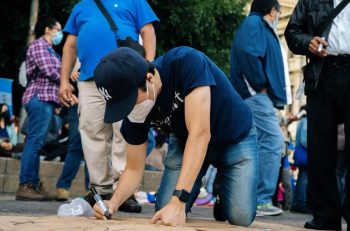
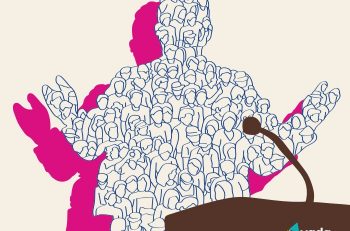
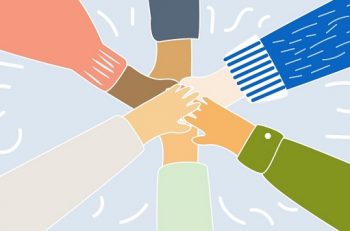

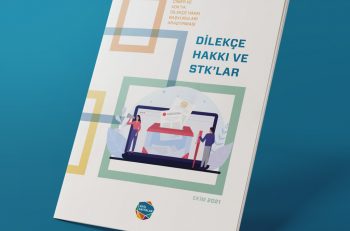



Bizi Takip Edin